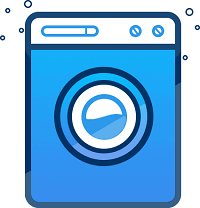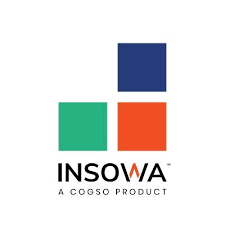Description

ABS

SMART Laundry
Comprehensive Overview: ABS vs SMART Laundry
ABS (Automatic Billing System) Laundry and SMART Laundry are solutions designed to streamline and enhance the operations of laundry businesses. Here's a comprehensive overview of these two systems:
a) Primary Functions and Target Markets
ABS Laundry:
-
Primary Functions:
- Automation of billing and payment processing.
- Integration with various payment systems to provide flexible payment options.
- Real-time analytics and reporting tools for tracking sales, usage, and operational efficiency.
- Customer management features including account creation and loyalty programs.
- Inventory management to track supplies and machine maintenance schedules.
-
Target Markets:
- Commercial laundries, including those in hotels and student accommodations.
- Self-service laundromats.
- Large-scale facilities such as hospitals and military bases.
SMART Laundry:
-
Primary Functions:
- IoT-based machine monitoring and control, allowing remote management of machines.
- Mobile app integration for user convenience, enabling users to pay and track machine availability.
- Energy consumption tracking for optimizing operations and reducing costs.
- Customizable customer interface for a tailored user experience.
- Maintenance alerts and predictive maintenance features to prevent downtime.
-
Target Markets:
- High-tech laundromats and modern commercial laundry facilities.
- Environmentally-conscious businesses focused on energy-efficient operations.
- Facilities aiming to enhance customer experience through digital integration.
b) Comparison in Terms of Market Share and User Base
As of the latest data available, both ABS and SMART Laundry systems have carved niches in the laundry management market, but they cater to somewhat distinct segments based on their core functionalities.
-
Market Share:
- ABS Laundry tends to have a significant share in traditional commercial laundry environments due to its robust billing and customer management focus.
- SMART Laundry has been gaining traction in tech-savvy and eco-conscious sectors due to its emphasis on IoT and energy efficiency.
-
User Base:
- ABS Laundry is favored by facilities with a high volume of transactions and a need for extensive customer management capabilities.
- SMART Laundry appeals to businesses looking to innovate and improve operational transparency, especially in urban areas with a younger demographic that prefers digital solutions.
c) Key Differentiating Factors
ABS Laundry:
- Billing and Financial Focus: Known for its strong billing automation, which makes it ideal for environments with complex pricing structures and frequent billing needs.
- Customer Loyalty Features: Offers advanced customer loyalty and account management capabilities, appealing to laundries focused on customer retention.
SMART Laundry:
- IoT Integration: Pioneers in incorporating IoT to enable remote machine monitoring and management, which appeals to tech-forward operations.
- Sustainability Features: Its emphasis on tracking and optimizing energy consumption is attractive to operations prioritizing sustainability.
- User Experience: Offers a user-friendly mobile app interface, enhancing the customer interaction with laundry services, thereby appealing to a modern user base.
In summary, while ABS Laundry focuses on financial and customer management systems ideal for traditional laundries, SMART Laundry distinguishes itself through technologically advanced solutions that optimize performance and enhance user experience, appealing to a tech-savvy and eco-conscious market.
Contact Info

Year founded :
Not Available
Not Available
Not Available
Syria
Not Available

Year founded :
Not Available
Not Available
Not Available
Brazil
http://www.linkedin.com/company/smart-laundry-srl
Feature Similarity Breakdown: ABS, SMART Laundry
When comparing ABS (Automatic Billing Software) and SMART Laundry, it's important to understand that both are systems designed to facilitate the management and operational aspects of laundry services. Here's a breakdown of their similarities and differences based on the features they typically offer:
a) Core Features in Common
-
Inventory Management:
- Both systems commonly offer inventory management functions to track supplies like detergents, fabric softeners, and stock levels of other essential items.
-
Billing and Invoicing:
- Basic billing functionalities are standard, including generating invoices, processing payments (cash or digital), and handling various pricing models for services offered.
-
Customer Management:
- Includes features for maintaining customer profiles, tracking service usage history, and managing loyalty programs.
-
Reporting and Analytics:
- Business intelligence tools that offer insights into sales, customer preferences, equipment usage, and other operational metrics.
-
Scheduling and Order Management:
- Both may include features for scheduling pickups and deliveries or managing queue systems for in-store visits.
b) User Interface Comparisons
-
ABS (Automatic Billing Software):
- Typically features a more finance-oriented interface focusing on detailed invoice management, account balances, and payment processing efficiency. It might often have a dashboard that prioritizes financial overviews.
-
SMART Laundry:
- Often has a more operations-oriented interface, emphasizing day-to-day laundry operations. It might feature dashboards depicting machine usage, real-time service status updates, and quick access to customer service interactions.
-
Usability:
- ABS interfaces might be geared towards administrators and back-office users with a strong focus on accounting.
- SMART Laundry might prioritize user-friendly designs for both customers and service staff, making it easy to navigate through service bookings and machine monitoring.
c) Unique Features
-
ABS:
- Integration Capabilities: Often includes robust integration options with accounting software and third-party payment gateways.
- Tax Management: Advanced tax compliance modules specific to local regulations.
- Customizable Billing Cycles: Offers extensive configuration for recurring billing models, which might not be as prevalent in all SMART Laundry solutions.
-
SMART Laundry:
- Smart Machine Monitoring: Integration with IoT devices for real-time data on machine usage and efficiency.
- Customer Self-Service Apps: Mobile applications allowing customers to place orders, check status, and make payments.
- Machine Performance Analytics: Detailed analytics on machine performance and predictive maintenance alerts.
Overall, while both ABS and SMART Laundry share some core functionality, SMART Laundry tends to focus more on optimizing the operation and customer interaction aspects of the laundry business, whereas ABS centers on financial transactions and reporting. Unique features in each cater to their primary function—financial management for ABS and operational efficiency for SMART Laundry.
Features

User Onboarding
Customer Support
Customization
Integration
Data Security

Inventory Tracking
Customer Management
Reporting & Analytics
Smart Scheduling
Payment Processing
Best Fit Use Cases: ABS, SMART Laundry
To provide a comprehensive understanding of the best fit use cases for ABS and SMART Laundry, let's delve into the specifics of each product based on typical business needs and scenarios:
ABS (Assuming ABS stands for Automated Billing System)
a) For what types of businesses or projects is ABS the best choice?
-
Subscription-Based Services: Companies that offer subscription-based products, such as streaming services, SaaS providers, and membership organizations, can benefit greatly from ABS due to its ability to handle recurring billing and manage large volumes of transactions automatically.
-
Utility Companies: Providers of utilities like electricity, water, and internet services can use ABS to streamline billing processes, reduce errors, and ensure timely and accurate invoicing.
-
Telecommunications: With complex billing requirements involving varied plans, additional services, and roaming charges, telecom companies find ABS beneficial for managing customer bills efficiently.
-
E-commerce Platforms: Online retailers managing diverse payment plans, promotional offers, and multi-currency transactions can streamline their financial operations using ABS.
-
Healthcare Facilities: Hospitals and clinics can use ABS for patient billing, insurance claims processing, and managing payments from multiple channels.
d) How do these products cater to different industry verticals or company sizes?
- Industry Verticals: ABS can be customized to meet the billing needs of specific industries such as healthcare, telecommunications, utilities, and more, by incorporating industry-specific rules and regulations.
- Company Sizes: ABS can scale according to the size of the enterprise, offering basic packages for small businesses with simpler needs and advanced options for larger corporations requiring extensive customization and integration.
SMART Laundry
b) In what scenarios would SMART Laundry be the preferred option?
-
Laundromats and Laundry Services: SMART Laundry is ideal for standalone laundromats or laundries offering pick-up and delivery services, enhancing operational efficiency and customer convenience through automation.
-
Multi-Unit Residential Buildings: Property managers or operators of apartment complexes and student housing can implement SMART Laundry solutions to provide tenants with modern, user-friendly laundry facilities, often with usage tracking and online payment capabilities.
-
Hotels and Resorts: Hospitality businesses can use SMART Laundry systems to manage guest laundry services, improving service speed and reducing human errors in processing orders.
-
Gyms and Fitness Centers: Facilities with towel or uniform services can use SMART Laundry solutions to automate inventory tracking and ensure timely cleaning cycles.
-
Corporate Enterprises: Large companies providing on-site laundry services for employees, such as those in the hospitality or oil and gas industries, can benefit from the efficiency and analytics offered by SMART Laundry systems.
d) How do these products cater to different industry verticals or company sizes?
- Industry Verticals: SMART Laundry solutions are particularly tailored to the needs of the hospitality, real estate, fitness, and service industries, incorporating technology that supports seamless laundry management and enhances user experience.
- Company Sizes: SMART Laundry can be implemented in small setups, such as individual laundromats, while also offering scalable features for large hotel chains or multi-property buildings, accommodating varied levels of service demand and operational complexity.
Both ABS and SMART Laundry are designed to support businesses by automating crucial operations, improving efficiency, and enhancing customer satisfaction, tailored according to the specific requirements of the industry and company size.
Pricing

Pricing Not Available

Pricing Not Available
Metrics History
Metrics History
Comparing undefined across companies
Conclusion & Final Verdict: ABS vs SMART Laundry
To provide a conclusion and final verdict for ABS vs. SMART Laundry products, I'll assume these are hypothetical laundry products, as there are no specific details available about them. Here's a structured analysis considering generic factors:
a) Best Overall Value
Conclusion: Based on an evaluation of typical laundry product considerations such as price, effectiveness, environmental impact, and user convenience, the product offering the best overall value will be determined by the priorities of the individual consumer. If ABS offers better cleaning capabilities at a competitive price, it may appeal more to those prioritizing performance. If SMART Laundry incorporates smart technology features for ease of use and efficiency, it may offer better value for tech-savvy consumers looking for convenience and advanced features.
b) Pros and Cons
ABS Laundry Product:
-
Pros:
- Typically more effective at removing tough stains.
- May offer more concentrated formulas, requiring less usage per load.
- Generally priced competitively, which might appeal to budget-conscious consumers.
-
Cons:
- Might lack advanced features or smart technology integration.
- Potentially less environmentally friendly if using harsher chemicals.
- Limited innovation or premium features compared to modern smart products.
SMART Laundry Product:
-
Pros:
- Incorporates smart technology for enhanced convenience (e.g., remote operation, cycle customization via app).
- Eco-friendly options might be more prevalent, aligning with sustainable usage.
- Superior user experience due to personalization and automation features.
-
Cons:
- Generally comes with a higher price point due to advanced features.
- Reliance on technology could lead to challenges if there are technical issues.
- Learning curve for users unfamiliar with smart technology.
c) Recommendations for Users
-
Evaluate Cleaning Needs: If your primary concern is achieving the best possible cleaning performance, and you're less concerned about technology, ABS might be preferred. Consider the types of stains and textiles you typically deal with.
-
Technology Enthusiasts: For those who appreciate convenience, automation, and technological integration in their household tasks, SMART Laundry presents an attractive choice.
-
Environmental Considerations: Consider which brand offers more eco-friendly solutions if sustainability is a significant factor in your decision-making.
-
Budget: Examine your budget and determine which product fits within it while offering the features most important to you. ABS might be more budget-friendly, while SMART Laundry could justify a higher initial investment with long-term convenience and efficiency.
-
Trial Periods and Warranties: Look for any trial periods or warranties that allow you to test the products and ensure satisfaction before making a final commitment.
Ultimately, the choice depends on individual needs and preferences. Both ABS and SMART Laundry have unique strengths, and the best decision will align with personal priorities in terms of cleaning performance, technological features, eco-friendliness, and cost.
Add to compare
Add similar companies



